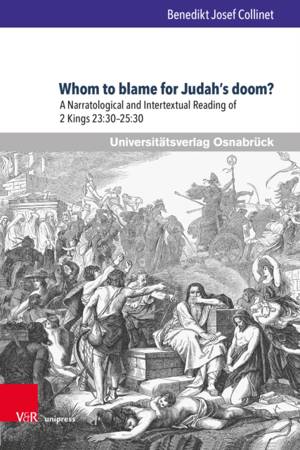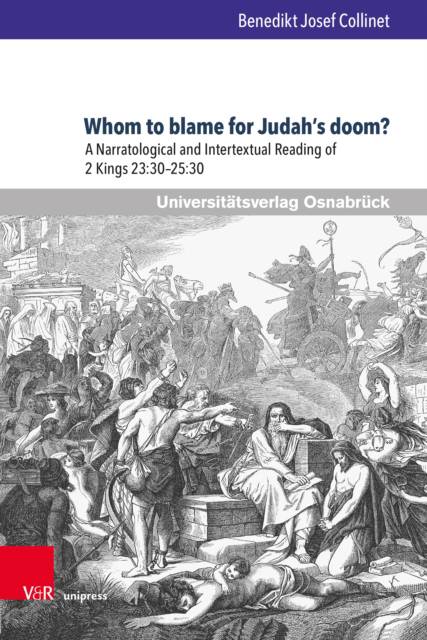
- Afhalen na 1 uur in een winkel met voorraad
- Gratis thuislevering in België vanaf € 30
- Ruim aanbod met 7 miljoen producten
- Afhalen na 1 uur in een winkel met voorraad
- Gratis thuislevering in België vanaf € 30
- Ruim aanbod met 7 miljoen producten
Zoeken
Whom to Blame for Judah's Doom?
A Narratological and Intertextual Reading of 2 Kings 23:30-25:30
Benedikt Josef Collinet
€ 63,95
+ 127 punten
Omschrijving
The last kings of Juda led God's people directly into exile and thus in the catastrophe of the destruction of the First temple. How did that happen? Who was responsible? What kind of role did God play in this drama? These questions will be addressed by Benedikt Collinet. Unlike the narrative suggests, the kings were not the protagonists of the drama but the antagonists to God instead. God used the neighbouring peoples and Babel as tools of punishment. The reason for these punishments was the systemic covenant break of God's people. The consequences of these punishments can be read in Deuteronomy 28. The story is a composed deconstruction of divine salvation promises. The salvation gifts were withdrawn but the promises still remained. The people needed a new beginning that with reference to the exodus could only be indicated or prepared by pardoning Jehoiachin (2 Kings 25:27-30).
Specificaties
Betrokkenen
- Auteur(s):
- Vertaler(s):
- Uitgeverij:
Inhoud
- Aantal bladzijden:
- 272
- Taal:
- Engels
- Reeks:
Eigenschappen
- Productcode (EAN):
- 9783847113447
- Verschijningsdatum:
- 23/01/2023
- Uitvoering:
- Hardcover
- Formaat:
- Genaaid
- Afmetingen:
- 155 mm x 231 mm
- Gewicht:
- 5166 g

Alleen bij Standaard Boekhandel
+ 127 punten op je klantenkaart van Standaard Boekhandel
Beoordelingen
We publiceren alleen reviews die voldoen aan de voorwaarden voor reviews. Bekijk onze voorwaarden voor reviews.








